
On 17 and 18 January 2023, in Skopje, NALAS hosted the regional conference “Models for inclusion of minorities and vulnerable groups in the Western Balkans – Sharing of expertise and recommendations for improved policy-making”.
More than 50 participants exchanged about the importance of inclusion for social cohesion and the protection of human rights at local level. They reflected on how to strengthen the capacities of local governments to include social approaches and tools for reducing discrimination and disadvantages of minorities and other vulnerable groups in the Western Balkans.
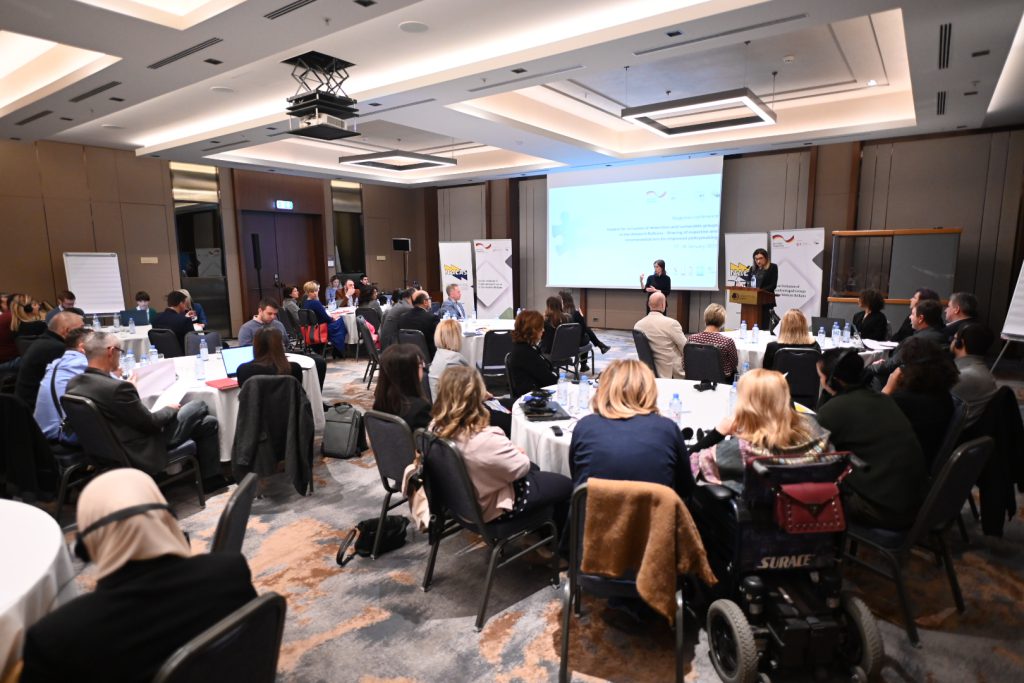
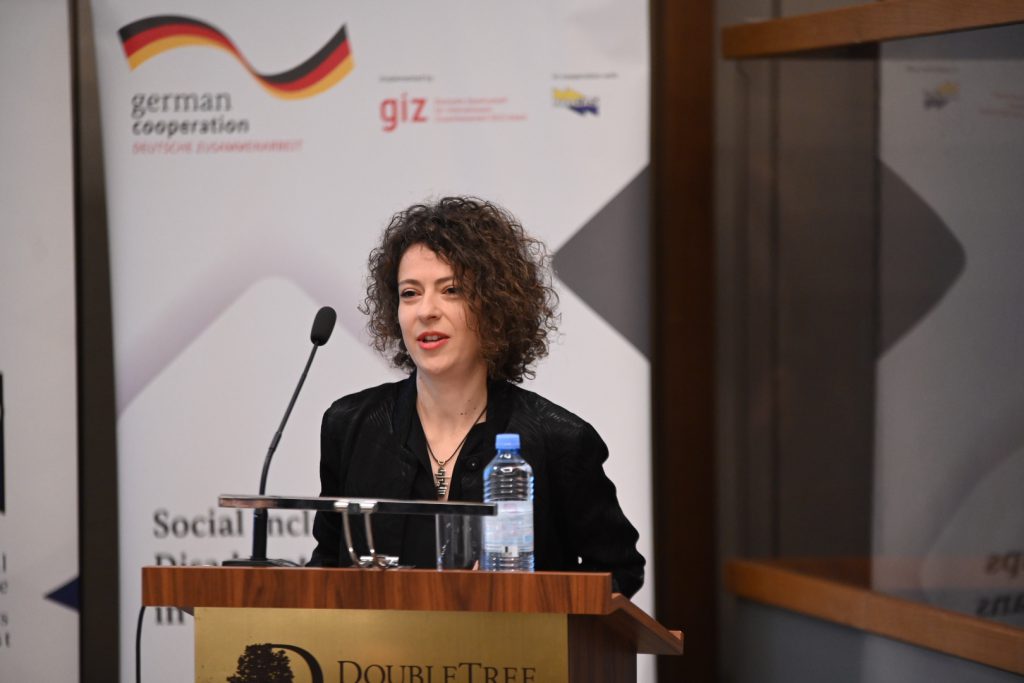
Ms. Jovana Trencevska, Minister of Labour and Social Policy of the Republic of North Macedonia opened the event, highlighting that cooperation between local and central government is paramount in building a strong system of support for vulnerable groups and creating new job opportunities while leaving no one behind.
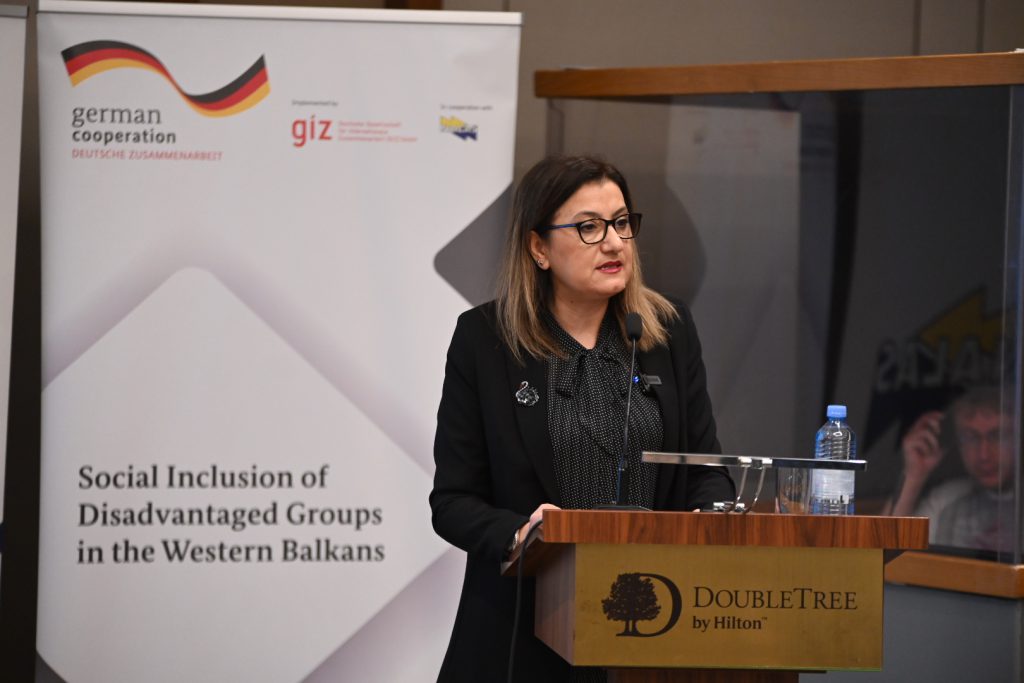
GIZ Country Director for North Macedonia and Kosovo* highlighted that social inclusion is a process of ensuring participation of all in society, particularly for people who are disadvantaged, through enhancing opportunities, access to resources, and respect for human rights. This process can only be achieved in close cooperation between all relevant local and national institutions.
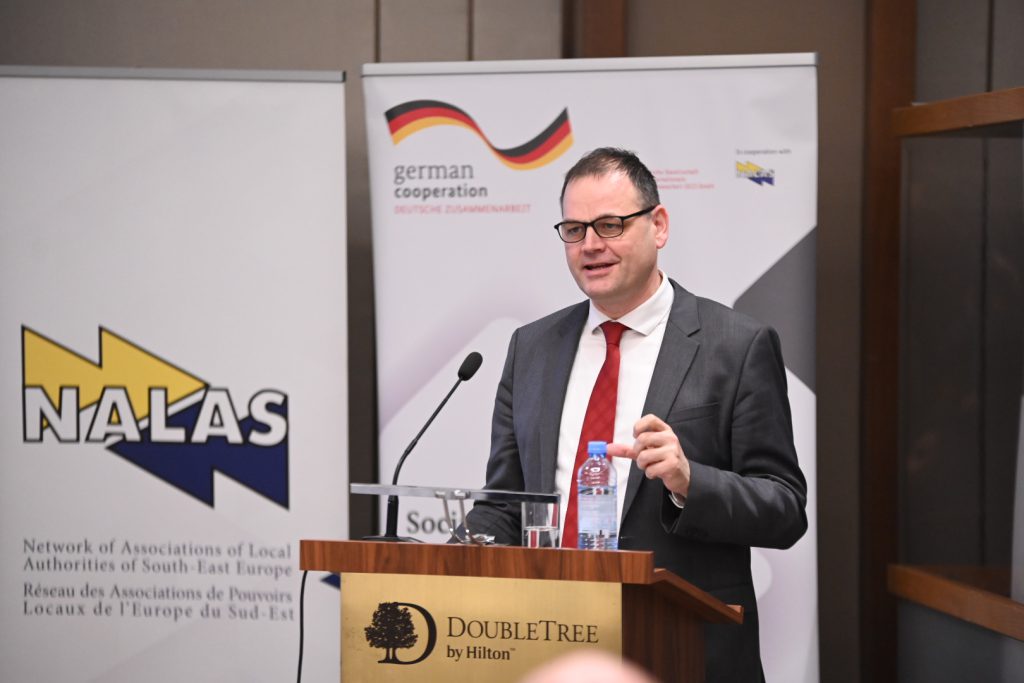
NALAS’ Executive Director, Mr. Kelmend Zajazi underlined the mission of NALAS to support strong local self-government in South-East Europe. NALAS supports building resilient communities, based on innovative solutions and best practices, peer-to-peer approach and knowledge sharing in support to multilevel policy dialogue at national level.
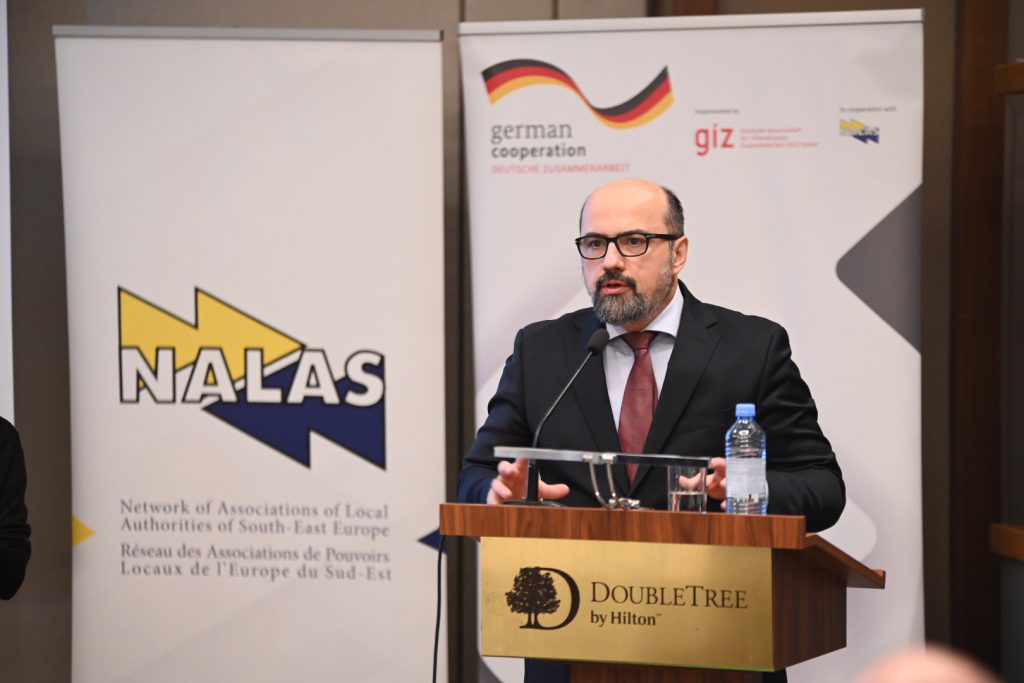
During the first day, the conference included three keynote presentations, the first one by Ms. Nurdan Kilic, focusing on the diversity management as a governance tool in the Federal State of Schleswig-Holstein to create the conditions for social justice and to eliminate discrimination against minorities, and the second one by Ms. Zora Popova from the Federal Union of European Nationalities-FUEN, where she presented about approaches in diversity management, through good practices/lessons learnt in diversity management on local level. The last keynote presentation was delivered by Mr. Ljubisa Stanisic, Minority Commissioner in the City of Bjeljina, who highlighted the commitment for democracy, cooperation, reconciliation and openness – dialogue and active local minority politics.
The participants had the chance through interactive exercises to discuss about what worked, challenges and recommendations in the applied methodology in social approaches, diversity planning and budgeting and “Leave No one Behind” principle.
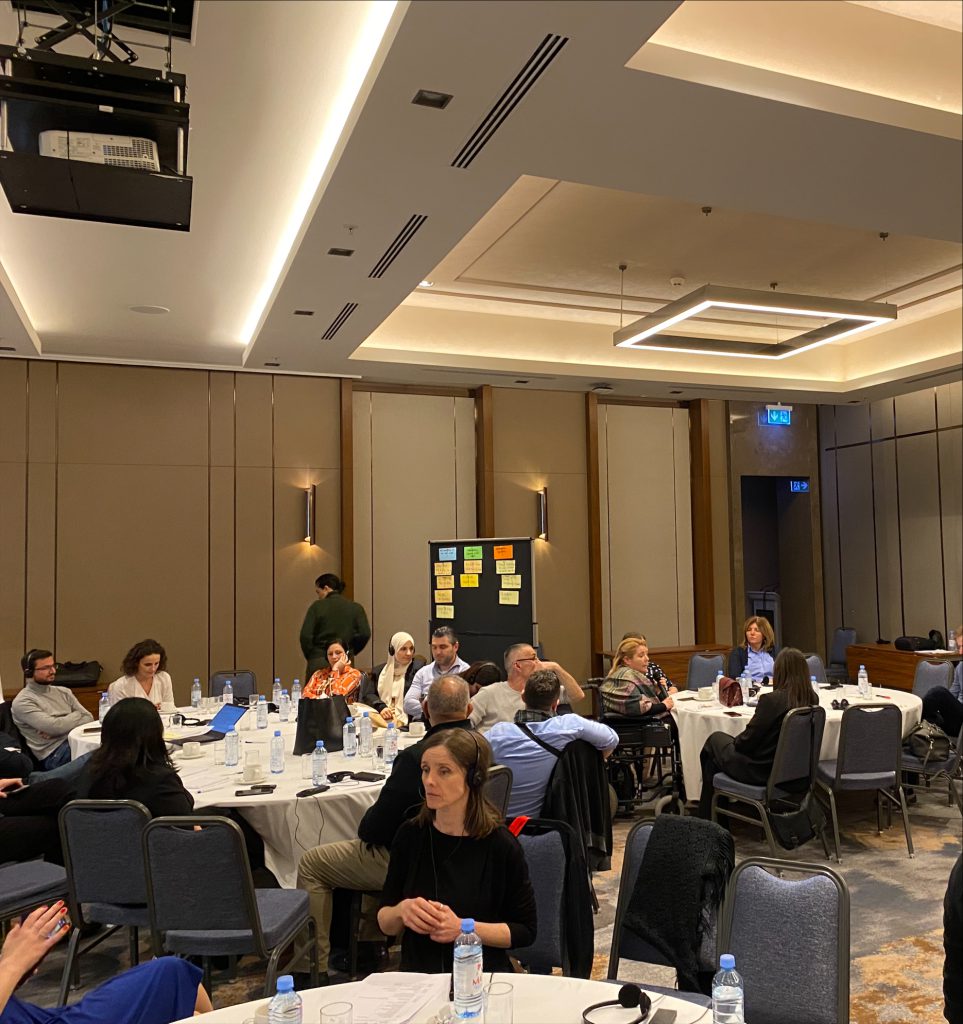
The aim of the second day was to present to participants from relevant state actors in charge of coordinating social policies examples of successful applications of social approaches at local level preceded with an example of coordinated approach between central and local government level regarding inclusion/diversity policy.
Two keynote presentations were delivered: the first one on NGO participation in policy processes – example from the Federal State of Schleswig-Holstein, Germany, delivered by Ms. Catharina Wesemüller, Center for independent living Northern Germany – ZSL Nord and the second one on good example for minority/social policy coordination between relevant state actors in the field of social, cultural and economic human rights and inclusion of vulnerable groups and local level, delivered by Mr. Osman Osmani, Head of the NGO “Nevo Concepti”, Prizren, Kosovo.
In addition, three best practices were presented on the Social Dialogue Forum approach delivered by Ms. Ankica Kijajova, Municipality of Probistip, Ms. Simona Jovevska, Municipality of Bitola and Mr. Mihaljo Gordic, Municipality of Vracar, Belgrade. Regarding the topic of Minority Commissioner, Mr. Klaudjo Taho presented the case of the Municipality of Tirana.
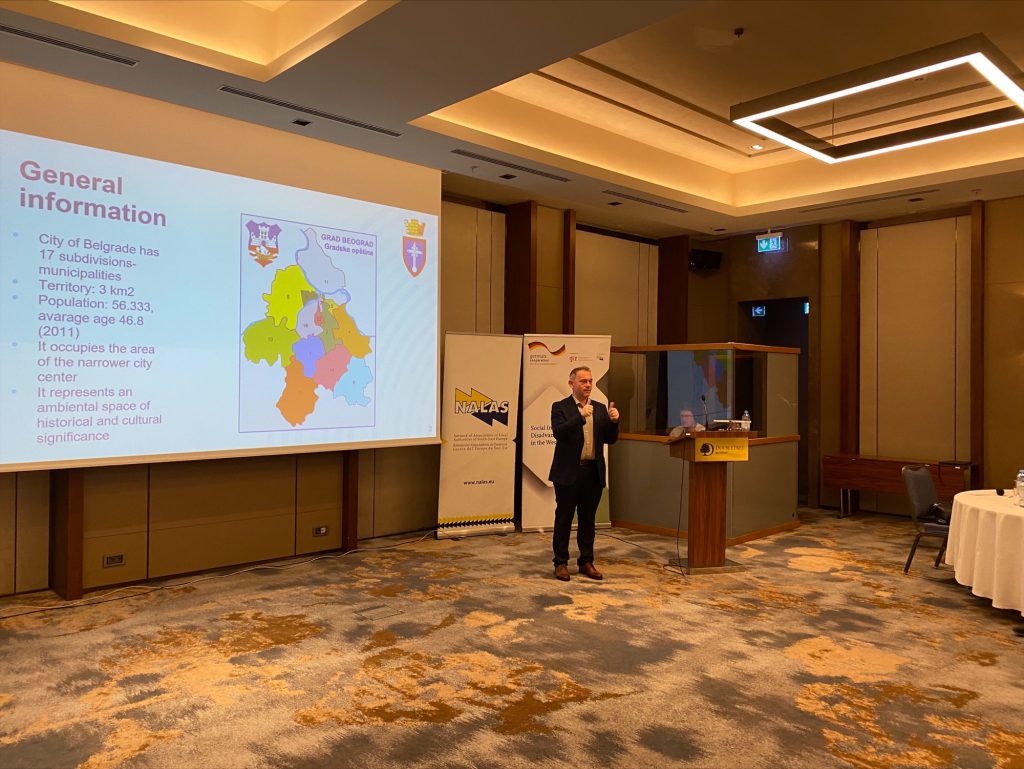
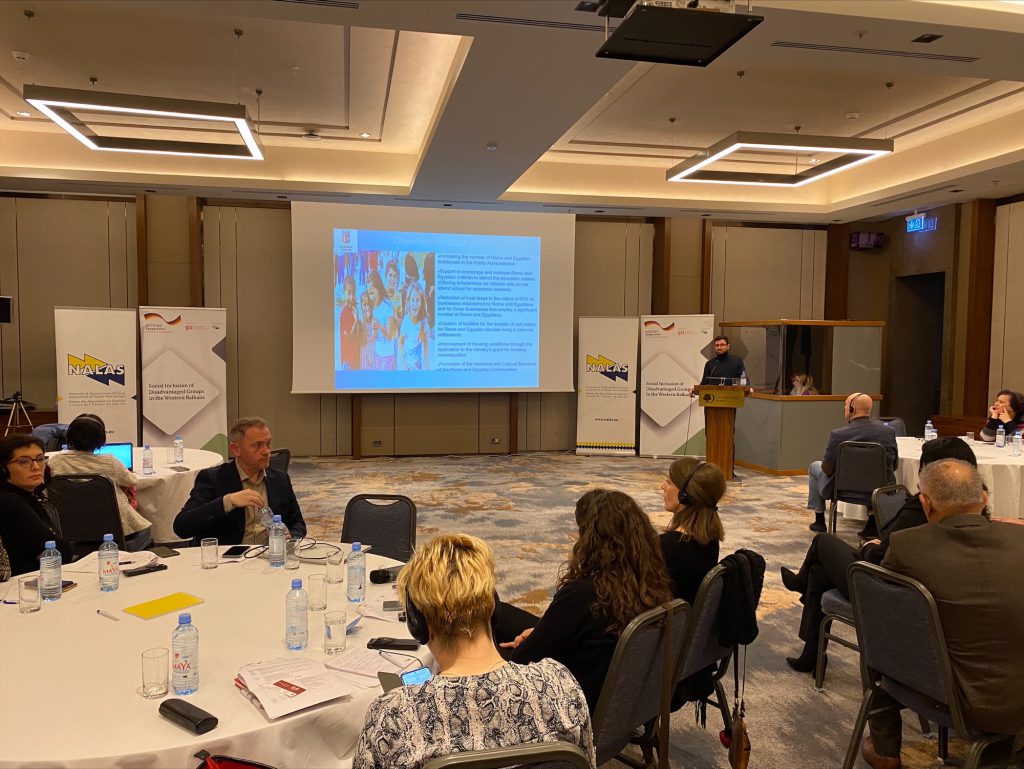
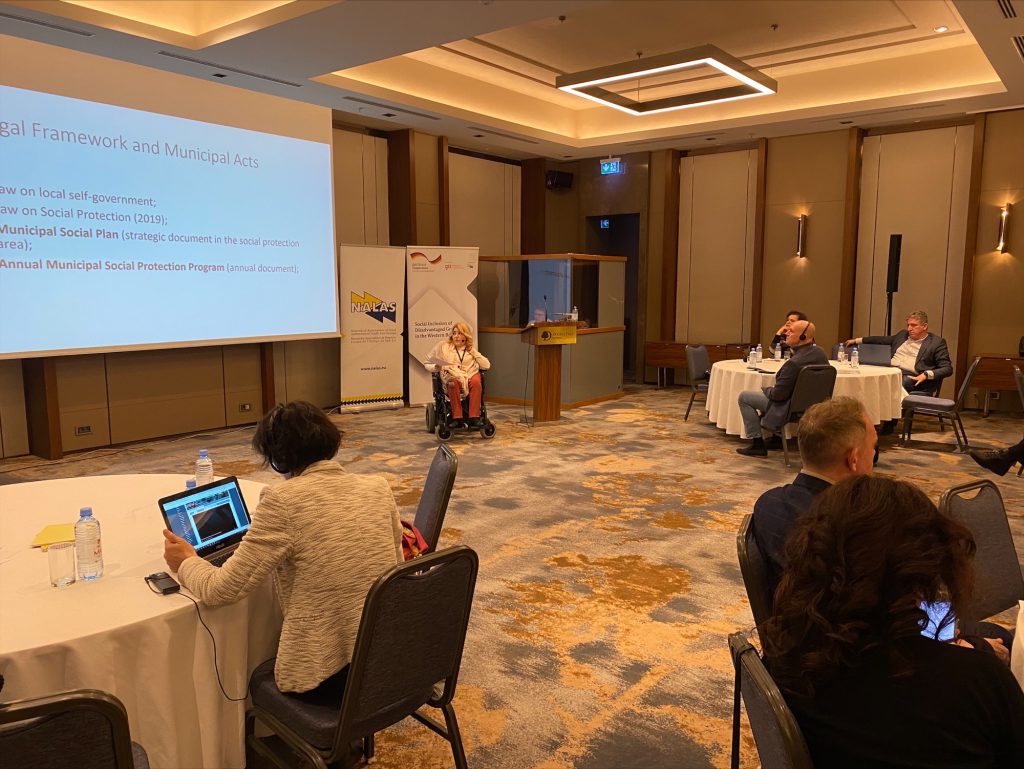
The main messages of the conference were:
Communicate
Communicate your achievements, results and future plans with the main stakeholders in your societies (local and state entities, NGOs, international organisations and general public). Communicate with the users of the social services, they know what suits their needs best. Minority Commissioner, social dialogue forum and social mapping are proven to be successful social approaches for that. Communicate your problems as well. There might be someone from your communities or beyond with a solution.
Build up
Use the know-how and experience that are being generously offered by GIZ. Even though we cannot compare to Western Europe countries, we can learn a lot from them and localise their practices and methodologies. Learn from your neighbours as well, we have so many positive practices among us.
Budget properly
Budget is always an issue. Be realistic and use the budgets that you manage wisely. Create diversity, equity and inclusion budgets.
Cooperate
Cooperate and build bridges at all levels micro, meso, macro, horizontally and vertically, including cooperation between governments, cross-border cooperation, cooperation between different levels of state and local governments and between governments and minorities within the state, cooperation between minority communities, as well as majorities, within and cross-border. Cooperate with international organisations, they might truly support your programs and do not forget to cooperate with the local NGOs. They are the ones having updated disaggregated data and knowing the root causes of the socio-economic issues in the community. At the end, we all pledged in achieving 2030 agenda, and only by joining forces we could succeed.
*All the materials from the conference are listed bellow
This regional conference was organised on behalf of the German Federal Ministry for Economic Cooperation and Development (BMZ) and the Federal State of Schleswig Holstein, NALAS in coordination with Deutsche Gesellschaft für Internationale Zusammenarbeit (GIZ), is implementing the project “Scaling up of minorities inclusion models and strengthening of service delivery in municipal structures in the Western Balkans”.
Ljubisa Stanisiv Minority Comissioner
* ‘This designation is without prejudice to positions on status, and is in line with UNSC 1244 and the ICJ Opinion on the Kosovo Declaration of Independence.’